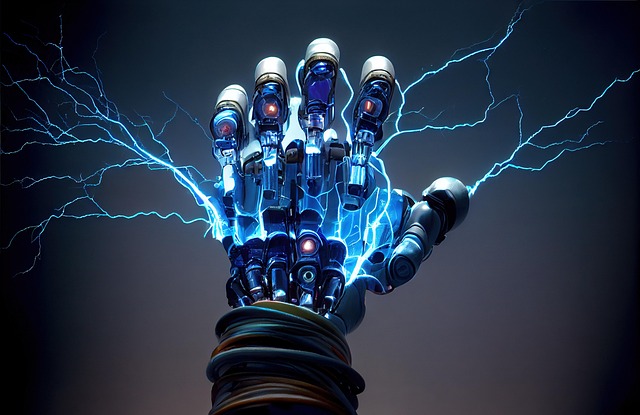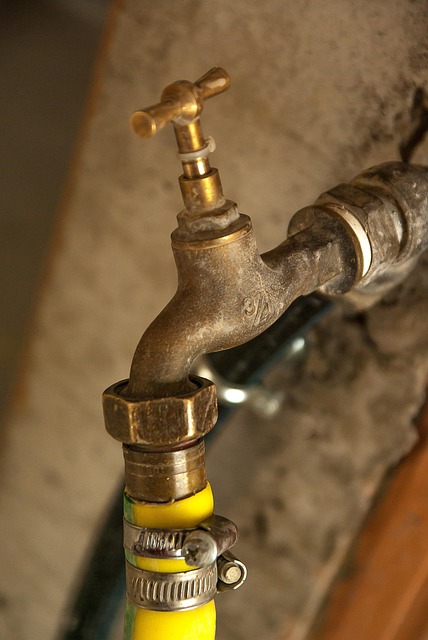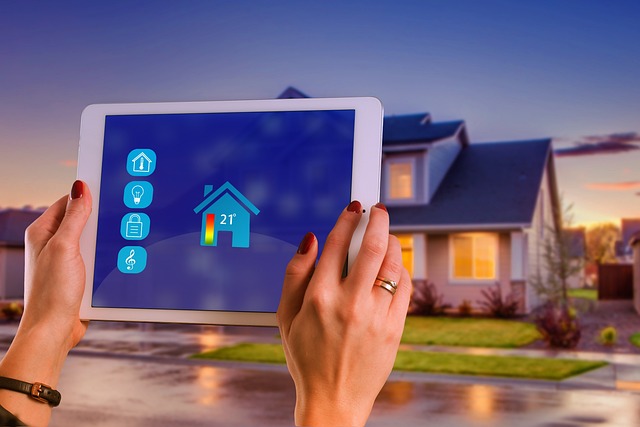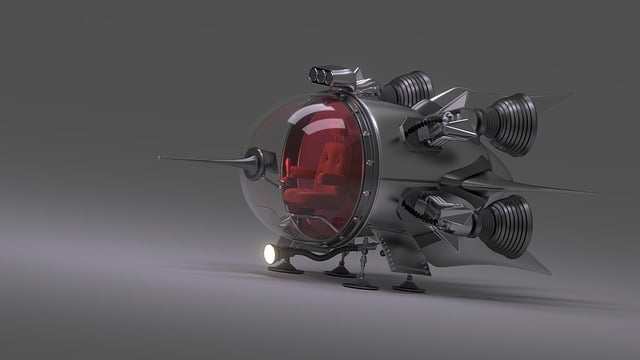Plumbing technologies, including smart water detectors, tankless heaters, advanced water filtration, and trenchless repairs, are revolutionizing water infrastructure management. These innovations offer real-time monitoring for leak detection, energy efficiency, precise temperature control, and sustainable water usage. Digital controls facilitate remote access, minimizing disruptions from maintenance, extending component lifespans, and promoting efficient, reliable, and environmentally friendly water management in today's digital era.
Remote monitoring revolutionizes the way we manage our plumbing systems, offering unprecedented efficiency and control. This article delves into the world of modern plumbing solutions, exploring how plumbing technologies play a pivotal role in efficient water management. From smart water detectors providing real-time data to tankless heaters and water filtration systems, each innovation contributes to sustainable practices. Additionally, we examine trenchless repairs and digital controls, highlighting their significance in maintaining and optimizing plumbing infrastructure.
- Understanding Remote Monitoring for Plumbing Systems
- The Role of Plumbing Technologies in Efficient Water Management
- Smart Water Detectors: Real-Time Monitoring at Your Fingertips
- Tankless Heaters and Their Impact on Water Conservation
- Water Filtration Systems: Ensuring Pure and Safe Water
- Trenchless Repairs and Digital Controls for Modern Plumbing
Understanding Remote Monitoring for Plumbing Systems

Remote monitoring for plumbing systems is revolutionizing how we maintain and optimize water infrastructure. By integrating smart water detectors, tankless heaters, and advanced water filtration technologies, homeowners and businesses can now gain real-time insights into their plumbing health. These innovative plumbing technologies offer more than just convenience; they enhance efficiency by enabling early detection of leaks, preventing costly damage, and optimizing energy use with precise temperature controls.
Through digital controls and trenchless repair techniques, remote monitoring systems provide a non-invasive approach to maintenance. This not only reduces disruption but also prolongs the lifespan of plumbing components. In today’s digital era, embracing these smart solutions is essential for navigating the complex landscape of modern water management, ensuring reliable service, and promoting sustainable practices.
The Role of Plumbing Technologies in Efficient Water Management

Plumbing technologies play a pivotal role in optimizing water management and enhancing overall system efficiency. One of the key contributors is the integration of smart water detectors, which offer real-time monitoring capabilities. These advanced devices can detect leaks, track water usage patterns, and even predict potential issues, allowing for prompt action to prevent wastage. Additionally, tankless heaters are gaining popularity due to their energy-efficient design, ensuring a constant supply of hot water without the need for storage tanks.
Water filtration systems have also evolved, providing advanced solutions to purify water sources within plumbing networks. These technologies remove contaminants, improving water quality and extending the lifespan of plumbing components. Furthermore, trenchless repairs have revolutionized maintenance practices by enabling non-invasive techniques, reducing disruptions, and expediting repair processes. Digital controls offer precise management, allowing users to adjust temperature settings, schedule maintenance, and remotely monitor various parameters, contributing to a more sustainable and efficient plumbing system.
Smart Water Detectors: Real-Time Monitoring at Your Fingertips

Smart Water Detectors are revolutionizing the way we monitor plumbing systems, offering real-time data and control at your fingertips. These innovative devices, integrated with advanced plumbing technologies, provide continuous surveillance of water usage, temperature, pressure, and quality. Whether it’s tracking potential leaks, optimizing tankless heater performance, or monitoring water filtration efficiency, these smart detectors empower homeowners and facility managers to proactively address issues before they escalate.
By leveraging digital controls, smart water detectors enable remote access and management, eliminating the need for frequent on-site inspections. This not only saves time and reduces operational costs but also facilitates trenchless repairs, minimizing disruptions and environmental impact. With real-time insights into plumbing system health, users can make informed decisions, enhancing efficiency and prolonging the lifespan of critical components like water heaters and filtration systems.
Tankless Heaters and Their Impact on Water Conservation

Tankless heaters are revolutionizing the way we approach water heating, offering a significant advantage in water conservation efforts. Unlike traditional storage tanks, these innovative plumbing technologies provide hot water on demand, eliminating the constant need to maintain a heated reservoir. This is particularly beneficial for households and businesses aiming to reduce their environmental footprint. By installing smart water detectors and utilizing tankless heaters, you can significantly cut down on water wastage, as there’s no longer any unnecessary heating or storage of water.
The impact extends beyond conservation; tankless heaters also enhance plumbing systems’ overall efficiency. Digital controls allow for precise temperature regulation, ensuring only the required amount of water is heated. Moreover, their compact design and trenchless repair capabilities make them a versatile option, especially in areas where space is limited or traditional plumbing modifications are challenging and costly. With these modern solutions, homeowners and businesses can contribute to sustainable practices while enjoying the benefits of reliable hot water supply.
Water Filtration Systems: Ensuring Pure and Safe Water

Water filtration systems are a crucial component of remote monitoring for plumbing systems, ensuring that the water supplied to homes and businesses is pure and safe. These advanced technologies use various methods, such as carbon filters, reverse osmosis, and ultraviolet disinfection, to remove contaminants like bacteria, heavy metals, and chemicals. By integrating smart water detectors with these filtration systems, property owners can monitor water quality in real-time and receive alerts when maintenance or replacement is needed, thereby enhancing overall water purity and system efficiency.
In addition to improved water quality, modern plumbing technologies like tankless heaters and trenchless repairs offer numerous benefits. Tankless heaters, for instance, provide on-demand hot water, eliminating the need for large storage tanks that can be energy-inefficient. Trenchless repair methods, on the other hand, enable non-invasive installations and replacements of pipes, reducing excavation costs and minimizing disruptions to surrounding structures and landscapes. Digital controls further enhance these systems, allowing for remote monitoring and adjustments, ensuring optimal performance, and contributing to overall sustainability.
Trenchless Repairs and Digital Controls for Modern Plumbing

The world of plumbing is experiencing a technological revolution, embracing innovative solutions like trenchless repairs and digital controls to enhance efficiency and convenience. Trenchless repair techniques have transformed traditional excavation methods, allowing for non-invasive access to plumbing systems. This advanced approach not only minimizes disruption to properties but also speeds up repair times. By using specialized equipment, such as cameras and robotic arms, plumbers can identify issues from the inside out, making repairs faster and more precise.
Additionally, digital controls and smart water detectors are integral parts of modern plumbing technologies. Smart water detectors use advanced sensors to monitor water usage patterns, detecting leaks or unusual activities in real time. These devices can alert homeowners through mobile apps, enabling prompt action to prevent costly damage. Tankless heaters, another popular trend, offer continuous hot water without the need for storage tanks, reducing energy consumption and saving space. Water filtration systems also benefit from digital controls, ensuring clean and safe water supply by automatically adjusting filtration processes based on quality levels.
